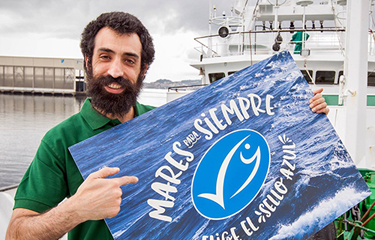The Marine Stewardship Council has advanced its formal review of its fisheries standard, opening public consultations and planning a progress update to be delivered on 8 June, recognized as World Oceans Day.
The London, United Kingdom-based organization nonprofit, one of the largest seafood-focused eco-labeling schemes in the world, is reviewing its standards and processes with the dual aims of increasing its effectiveness and addressing perceptions of inadequacies in how its system works.
Its formal fisheries standard review takes place every five years; the most recent review began in 2018 and will run through 2021.
“We regularly review our standard to ensure it reflects widely-accepted new science and fisheries management best practice,” the organization said in a statement. “By the end of 2021, we will have developed options for all projects in the review and will have drafted a proposal for a revised standard, which will be reviewed by our technical advisory board, stakeholder advisory council, and board of trustees.”
An ongoing focus of the review is an effort to clarify the certification’s requirements for the management of endangered, threatened, and protected (ETP) species.
“Current methods of categorizing what constitutes an ETP species has … been raised as a barrier to consistent assessment of fisheries. Stakeholders have noted inconsistencies caused by the use of varying red lists of vulnerable species in the MSC standard. These lists often vary from country to country, having different criteria and quality of data for their ratings,” MSC said. “We also want to ensure sensitive populations are consistently assigned as endangered, threatened, or protected so certified fisheries can allow these species to recover and thrive. To do this, we may streamline ETP species designation and assessment, while also ensuring requirements reflect widely accepted and adopted science and management best practices. We also want to incentivize consistent data collection on interactions and mitigation methods used by fisheries. This will help to accurately monitor impacts on ETP species.”
MSC vowed to review all feedback it receives through the consultation process
“This is used to refine the proposed revisions to our standard, alongside further internal analysis and impact assessments,” it said.
Any proposed changes to MSC’s current standard will be opened to the public, which will have a chance to review and comment on the updates in early 2022, MSC said. The new standard will be released after that review period, likely in the middle or latter part of 2022, once it is approved by MSC’s governance bodies.
Photo courtesy of Marine Stewardship Council







